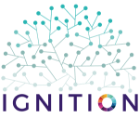Ignition Coach Spotlight: Amy Fung
Today’s coaching spotlight is part of a series where we will feature and celebrate the diverse and talented coaches that work with Ignition around the globe. We hope you enjoy getting to know a bit more about the wonderful folks who make our work unique.
Today, we are featuring Executive Coach, Amy Fung. Based in Hong Kong, Amy is a seasoned finance executive who now works as an executive coach, trainer and facilitator. She is passionate about helping people find their true core values and excel in their chosen professions. For a full bio, visit her about page here.
Here’s what Amy shared with us.
What inspired you to become an executive coach?
I wanted to support people to help them achieve a happier and more fulfilled life. Because of my background, it is easier for me to build connections with working professionals and to support them to achieve excellence in their areas of expertise.
What is your favorite thought leadership resource? (book, podcast, journal)
Do you have a regular meditation or mindfulness practice and if so how does it help? What other practices do you have to build your resilience levels?
Yes. Mindfulness helps me to stay more grounded. I also like to stay active with exercise like hiking and dancing. Singing also helps me stay positive.
How have you been able to overcome the emotional and physical challenges of pandemic?
The last year has been a challenging year for everyone. Like so many people, I have also gone through the ups and downs of the emotional roller coaster. We all need support, especially in times of so much uncertainty.
Last year I was lucky enough to join a lean-in circle for Women leaders online organized by the Women’s Foundation Hong Kong. To help, I also created an online community or support group of coaches. It’s helped us stay connected and feel like we weren’t alone.
In these sessions, we were able to share our feelings, our challenges, and also share knowledge with each other so that we could all continue learning. In this group we’d share mindfulness practice and hobbies as well as our routines with our families, like going for walks around the neighborhood with my husband or doing board game nights with my kids. The time connected to friends and sharing these tips helped us all get through tough times.
Now a year in, 2021 is off to a great start. I’ve taken the time I need to rest and reflect on where I want to be. I think this year is about recovery for everyone. Things are starting to pick up, people’s spirits are higher and more positive generally. I want to make use of my coaching, training and facilitation to support people in their recovery process this year. I think many people could really benefit from that support.
What are the misconceptions about coaching?
One of the things I have found in my work is that when an organization assigns an employee with a coach, that employee may start off thinking that they’ve done something wrong and that this is why they need coaching. However, in most cases I have found that organizations assign a Coach like myself when they want to invest in their people. It often means that the employer sees value in their employee and they want to acknowledge their strengths and help them continue to grow to prepare them for their next step or promotion within the company. To help dispel any concerns, I always start with the employees’ strengths and then we go on to identifying the areas they can improve on.
Tell us a brief story about a moment you saw the impact your work had on a client.
I was working with a client in a manager role who had communication challenges when working with her colleagues, not only in her own department, but across the other divisions. Her company assigned her to me for a three month coaching program and at the beginning she was quite skeptical and felt like she had done something wrong. I helped her understand that I was a resource offered by the company with the intention of helping her to grow.
At first, she was perceived by her colleagues as quite stubborn, always leaning towards no. During our sessions, we realized that although she was risk averse, her intention was to protect the company. Generally, she’s a prudent person and values being careful and because of her upbringing, she's reluctant to give appreciation both to her colleagues and herself.
She realized that if she wanted to get promoted, she would need to learn to be more creative and flexible. After defining her values and her mindset, she decided to make a change by taking a small step to not just say no right away, but instead learning to pause. This small action helped to make a big change in her.
After a few coaching sessions, she had expanded her perspectives, and she became more empathetic and creative. She also began to acknowledge her strengths more. She was able to free herself from the feeling that she was being an annoyance when her colleagues were trying to rush into a hasty decision and she was being prudent. This realization was so inspiring for her. Overall, this change has led to a shift in her attitude and behavior towards her colleagues such as giving more acknowledgement to her subordinates and being more accepting towards her counterparts.
At the last session, when she was sharing what she’d learned she was in tears saying that rarely in her work or business life had she come across anyone who would support her so unconditionally. I didn't realize that I had made such an impact, and I was really touched when she shared that with me.
